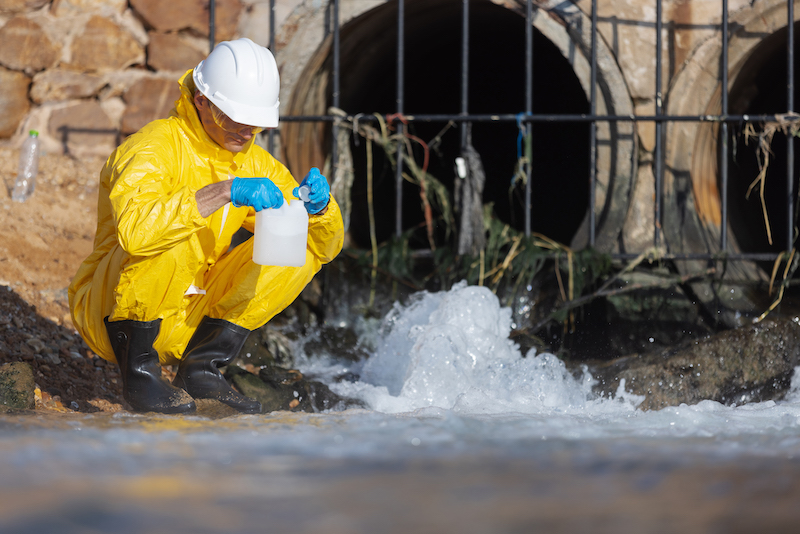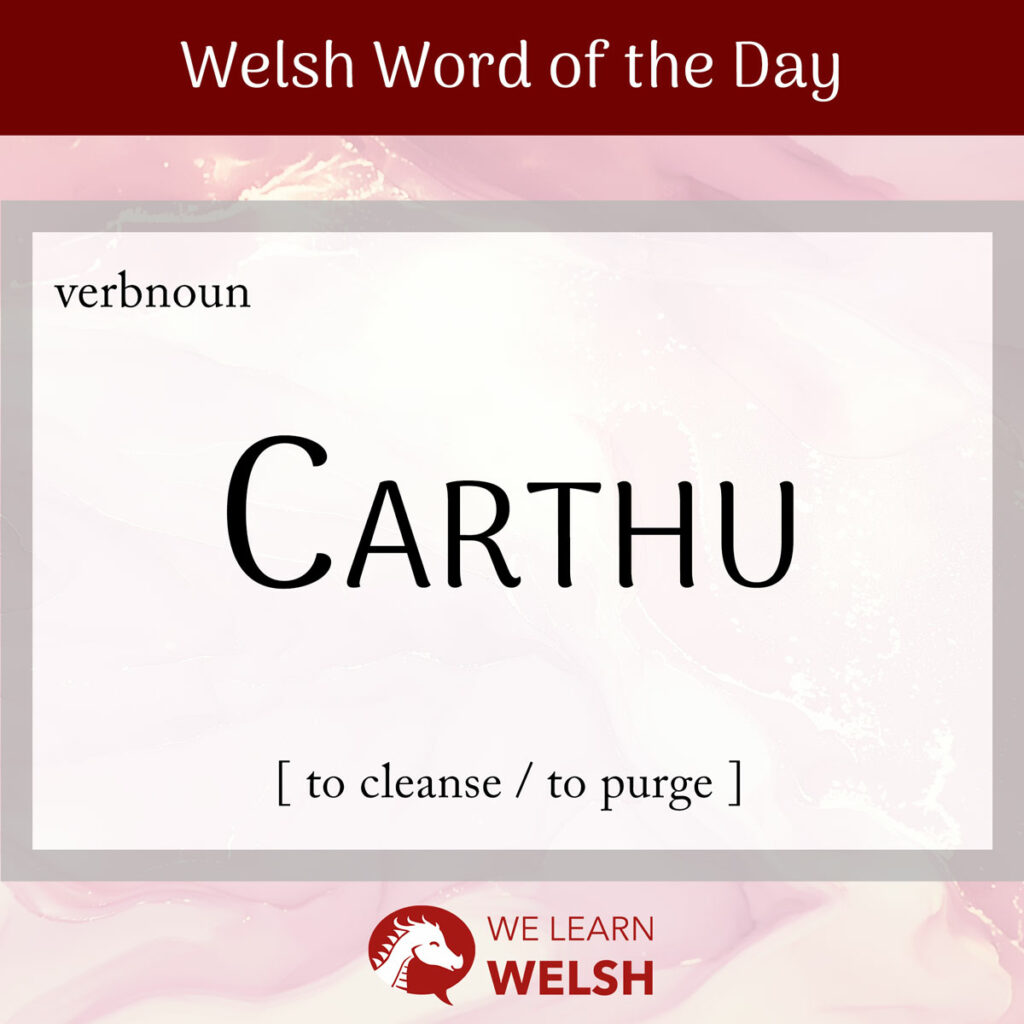Carthu is an interesting Welsh word meaning to purge or to cleanse. It works well in descriptive language, particularly if you’re trying to be poetic. It also becomes useful in a couple of set phrases.
Because carthu finishes with the mysterious Welsh letter u, its pronunciation differs between North and South Wales. In the latter, the final vowel sounds just the same as if it were spelt carthi, much like the English sound ee. In the North, it’s slightly different and doesn’t correspond perfectly to any sound or letter used in English.
Here are examples of both pronunciations:
carthu (S)
to cleanse / to purge
carthu (N)
to cleanse / to purge
Both are perfectly correct, but you may want to try and imitate whichever rendering is native to the dialect of Welsh you’re focused on learning.
Carthu comes from the proto-Celtic *kartati (to clean or to expel). It’s possible that the root of the word actually had something to do with the preparation of gwlân (wool)!
It can be affected by any of the three mutations:
Soft mutation
garthu
Nasal mutation
ngharthu
Aspirate mutation
charthu
Generally, the word means cleansing, cleaning, or purging. It may seem easy to forgo in favour of more familiar words like glanhau (cleaning), clirio (clearing) or puro (to purify), and indeed that’s usually what you would do when talking about cleansing, except in the specific context of carthu carthffos (cleaning out / dredging a sewer).
But this quirky verb is more useful than you might think. For example, clearing one’s throat is traditionally rendered carthu gwddf in Welsh. You may also come across the alternative carthu gwddwg in the Southwest, and some people do use clirio instead of carthu, though this is less idiomatic.
Carthodd ei wddf, ac yna dechreuodd siarad.
He cleared his throat, and then began to speak.
Carthu is also the ancestor of words like ysgarth (excrement), carthydd (a laxative), or carthiad (a cleansing, a purification, or a purge). Plus, without the word carthu, we wouldn’t have a word for carthion (sewage)… and then where would we be!

Now carthion is actually the plural form of the singular carth – but the word is almost always used as carthion. In fact, you may even have heard the word carthion in phrases like tanc carthion (septic tank), gwaredu carthion (sewage disposal) or triniaeth carthion (sewage treatment).
This does make sense when you think about it, as it’s not like carthion generally consists of just one single item floating around! And it reflects a general tendency in Welsh to refer to things in a collective sense. You see this often with reference to planhigion (plants), where the default form of the word is the plural, also called the collective.
Mae’r Deyrnas Unedig yn ceisio cynhyrchu llai o garthion.
The United Kingdom is trying to reduce its sewage production.
Aside from the classic carthu gwddf, today’s word turns up in other bodily functions too. Though the expression carthu dŵr (purging water) for urinating has today been replaced by troethi, and carthu corff (purging the body) is a very archaic phrase for defaecating, there is still one similar word that remains in use. That’s ymgarthu, the modern formal way of referring to what would once have been carthu corff.
Of course, both troethi and ymgarthu are replaced by a great many casual alternatives in colloquial speech. Piso and pipio are both common ways to talk about number one, and for number two the word you are most likely to hear, although it is quite vulgar, is cachu.
By now, I’m sure you’ll have got the sense that carthu, though its meaning may seem innocuous at first sight, is generally used when talking about the less fine things in life. I hope you won’t hold this against it and will enjoy adding this not-so-glamorous Welsh verb to your vocabulary!

